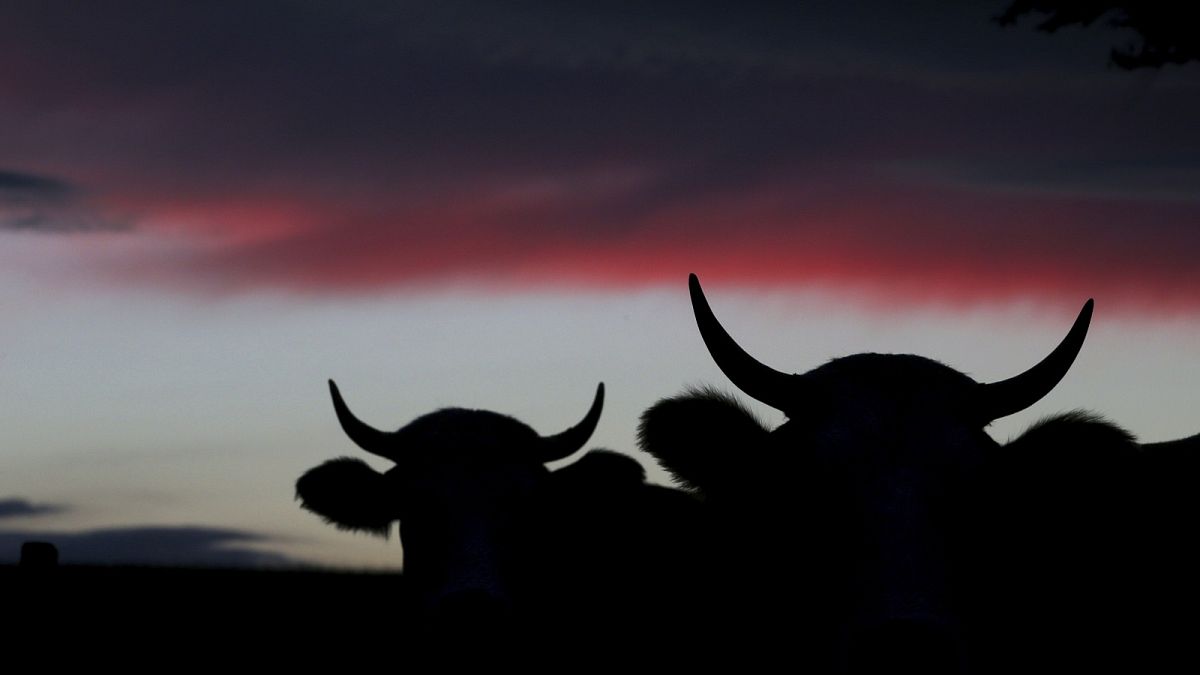Farmers are facing attempts to use COVID-19 to influence EU policy and undermine animal agriculture by falsely linking the outbreak with modern farming practices, which are often maligned and poorly understood.
Of all the businesses and enterprises impacted by the coronavirus outbreak, Europe’s farms are among the most vulnerable – and the most essential. At a time when demand for safe, affordable food is spiking, the pandemic has restricted access to agricultural workers, as well as disrupting processing operations on livestock farms.
And on top of these pressures, farmers are also facing attempts to use COVID-19 to influence EU policy and undermine animal agriculture by falsely linking the outbreak with modern farming practices, which are often maligned and poorly understood.
From a business perspective, this is unhelpful, but from a scientific perspective, this is entirely misguided. Coronavirus - like SARS, Ebola and almost three quarters of infectious, animal-borne diseases - was not created on a farm, but most likely originated in wildlife.
In fact, early results indicate that neither pigs, chickens nor ducks can be infected with COVID-19, meaning that domesticated livestock are highly unlikely to be the route through which coronavirus reached people. Rather, livestock farms and farmers are more likely to be the victims of emerging diseases than the cause, and they manage these threats on a daily basis, making recent calls to limit livestock production unnecessary and counter-productive.
Preventative veterinary medicine, such as vaccines, and biosecurity measures - indoor confinement, for instance - are increasingly effective at keeping animals across Europe safe from both existing and emerging diseases. In some ways, veterinary medicine has enjoyed greater success than human medicine at tackling disease, given many of these protective steps are easier to implement for animals than for humans, precisely because livestock are kept in numbers and in uniform conditions.
Moreover, animal-source foods like meat, milk and eggs offer many benefits in terms of energy and nutrients as part of a balanced diet, and, in Europe at least, their safety is almost guaranteed thanks to rigorous animal health standards.
At the heart of Europe’s success in managing animal disease risk in recent years is vaccination, which can be carried out en masse to have maximum impact and produce herd immunity. Vaccination has allowed most European countries to control prevalent and endemic diseases, like porcine reproductive and respiratory syndrome and porcine circovirus-associated diseases.
And, with additional biosecurity measures including improved hygiene and decontamination processes, it has even been possible to eradicate viruses like Aujeszky’s disease and hog cholera. When it comes to new animal diseases emerging from wild animals, such as African swine fever or avian flu, housing animals indoors with filtered ventilation systems can protect them from interactions with wildlife and the associated disease risk. Whilst this approach is often unfairly criticised, keeping animals indoors can be essential for protecting their health and well-being, in the same way that the lockdown has been vital for protecting people against coronavirus.
Finally, both global cooperation and monitoring of animal diseases mean countries can take swift action to limit the movement of animals where there is risk of an outbreak.
Human medicine can learn a lot from the way the livestock industry screens animals and compartmentalises regions to limit the spread of disease, only allowing movement of animals within an area designated as disease-free. This principle may well be applied when lifting current travel restrictions and considering “immunity passports.”
So, while some groups have hijacked the pandemic to attack animal agriculture, the reality is that animal health and veterinary medicine across Europe has made enormous advances that protect both animals and consumers.
The question of blame for the COVID-19 outbreak is much more complex. Is it the original infected bat? Or the first person to have contracted it? Or the first infected person to travel abroad?
Ultimately, the responsibility for the circumstances that led to the outbreak must lie with people, their changing relationship with wildlife and the natural environment - and their own decisions and choices.
And while animal agriculture plays a role in this ecosystem of global health, there is insufficient evidence that intensive animal agriculture alone is the source of these outbreaks, meaning there is no good reason to make the business of livestock farmers any more difficult than it already is.
- Professor Hans Nauwynck is the director the Laboratory of Virology within the Faculty of Veterinary Medicine at the University of Ghent. His research focuses on cellular and molecular pathogenesis of viral diseases in man and animal.
____________
Are you a recognised expert in your field? At Euronews, we believe all views matter. Contact us at view@euronews.com to send pitches or submissions and be part of the conversation.


